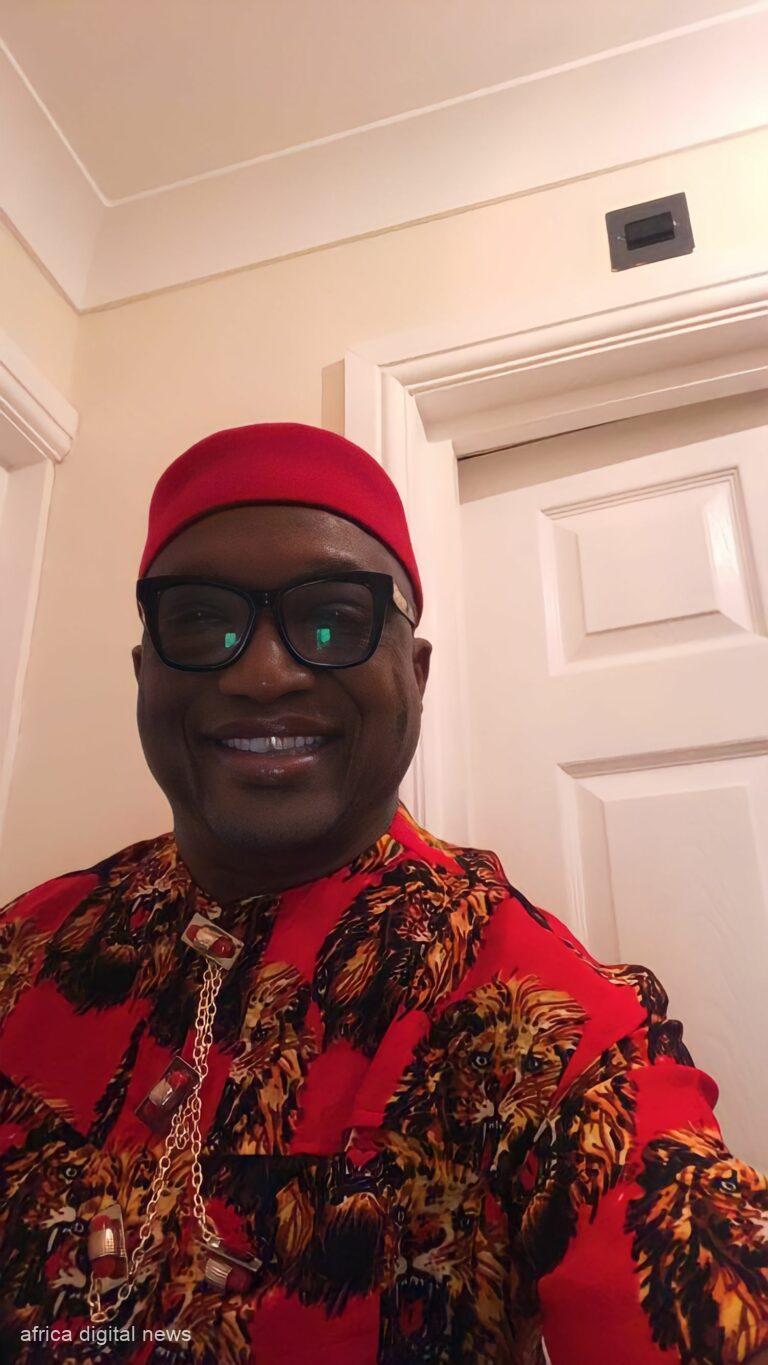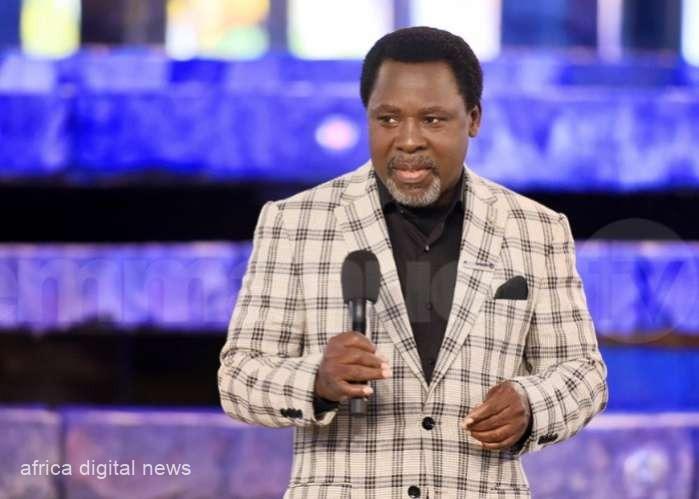In a compelling call for adherence to the emerging Imo Charter of Equity, Chief Better Joseph Ekeh, a prominent figure in international business and politics, has emphatically stated the case for an Owerri native to assume the governorship of Imo State. This assertion comes as the state’s three geopolitical zones – Owerri, Okigwe, and Orlu – are on the brink of legally documenting the Charter, a pivotal agreement set to ensure rotational governance starting from Orlu to Owerri.
Chief Ekeh, renowned for his extensive business acumen as the Chairman of Adavinn Inn and CEO of Alaowerri Restaurant in London, as well as his role in attracting foreign investment to Imo State, brings a unique perspective to this debate. His advocacy for an Owerri governor stems from a deep-seated belief in equitable representation and balanced development across the state’s diverse regions.
With Imo State’s impressive economic standing, marked by a GDP of $19.02 billion and a ranking as Nigeria’s fourth-largest economy, the need for inclusive and fair governance is more crucial than ever. The Imo Charter of Equity, in Chief Ekeh’s view, is not just a political arrangement but a necessary step towards ensuring that each zone’s potential is harnessed and that the challenges unique to each area are adequately addressed.
As the state grapples with issues such as high youth unemployment and the need for sustainable economic growth, the Charter’s implementation could mark a turning point. The prospect of an Owerri native leading the state is seen as an opportunity to infuse new ideas, perspectives, and strategies into the governance of Imo State, reflecting the Charter’s spirit of fairness and rotation.
Chief Ekeh’s endorsement of this political rotation aligns with his vision of a progressive and prosperous Imo State, where equity and justice in leadership pave the way for comprehensive and inclusive development. The dialogue surrounding the next gubernatorial election in Imo State is not just about political representation; it’s a broader conversation about ensuring that every zone’s voice is heard and respected in the journey towards the state’s future.
Read Also: Chief Ekeh: 2023 Governorship Poll And Imo’s Path Forward
Excerpts of the discussion:
Chief Ekeh, based on your advocacy for the Imo Charter of Equity, can you elaborate on why it is crucial for an Owerri indigene to succeed Governor Hope Uzodinma? How does this align with the principles of equitable representation and balanced regional development?
I firmly believe that the ascendancy of an Owerri indigene to the governorship after Governor Hope Uzodinma is not only a matter of fulfilling the Imo Charter of Equity but is also crucial for the harmonious and balanced development of our state. This principle of rotation, as proposed in the Charter, is fundamental to ensuring that each geopolitical zone in Imo State is fairly represented and given the opportunity to contribute to our collective progress.
The significance of an Owerri native assuming this role goes beyond mere political representation; it is a vital step towards addressing the unique needs and aspirations of the Owerri zone, which have been distinct in their socio-economic and cultural context. By rotating leadership, we ensure that no single area dominates the political landscape, thereby fostering a sense of belonging and inclusivity among all regions. This is essential for the long-term stability and unity of Imo State.
Moreover, as someone deeply involved in international business and investment, I understand the importance of showcasing the diversity and dynamism of our state to the world. An Owerri governor brings a new perspective and leadership style, which is crucial in driving innovative policies and attracting foreign investment. It’s about presenting Imo State as a diverse, vibrant, and progressive entity, capable of adapting and flourishing in the rapidly changing global environment.
The need for an Owerri indigene to take over the reins of governance in Imo State is a strategic move that aligns with our commitment to equitable development and the principles of justice and fairness as enshrined in the Imo Charter of Equity. It is a testament to our belief in a united, prosperous Imo State where every zone has an equal stake in shaping our future.
In light of Imo State’s significant GDP and economic standing, how do you believe an Owerri governor will influence the state’s economic policies and growth trajectory? What unique economic opportunities can an Owerri leader bring to the forefront?
As a proponent of the Imo Charter of Equity and a keen observer of Imo State’s economic landscape, I believe an Owerri governor can significantly influence the state’s economic policies and growth trajectory. Given Imo State’s impressive GDP of $19.02 billion, the economic stewardship of the next governor is crucial. An Owerri native at the helm offers a unique opportunity to diversify and strengthen our economic foundations, drawing from the region’s rich cultural and intellectual resources.
An Owerri governor would bring a fresh perspective, especially in sectors where Owerri has historical strengths, such as education, technology, and tourism. Leveraging these areas can spur new growth avenues, contributing to the state’s overall economic development. Moreover, with Owerri’s reputation as a hub of education and culture, there’s immense potential to innovate in knowledge-based industries, attracting investments and creating high-value jobs.
Furthermore, the per capita GDP positioning of Imo State as fourth in Nigeria reflects both opportunities and challenges. An Owerri leader, understanding these nuances, can implement policies that not only drive economic growth but also address income inequality and social disparities. This approach ensures that the benefits of economic progress are equitably distributed among all citizens.
An Owerri governor, with a nuanced understanding of the region’s strengths and challenges, can craft and implement economic policies that not only enhance Imo State’s standing in Nigeria but also ensure inclusive and sustainable development for its people. This shift in leadership can be a catalyst for a new economic era in Imo State, marked by innovation, inclusivity, and prosperity.
Considering the rotational governance model proposed in the Imo Charter of Equity, how do you foresee the choice of an Owerri indigene as the next governor contributing to political stability and unity within the state?
Addressing the complexities of political stability in Imo State, especially in the context of the proposed Imo Charter of Equity, is a matter of utmost importance. As an advocate for the Charter, I believe that the election of an Owerri indigene as the next governor is pivotal for ensuring political harmony and reinforcing the foundations of democratic governance within the state.
The rotational governance model proposed in the Charter is not just a political arrangement; it is a framework designed to foster a sense of fairness and belonging among all geopolitical zones. By ensuring that the governorship position rotates among Owerri, Okigwe, and Orlu, we are not only honoring a commitment to equitable representation but also mitigating the risks of regional favoritism and imbalance. This approach is instrumental in building trust among the diverse communities that make up our state.
The election of an Owerri governor, therefore, is a step towards stabilizing the political landscape in Imo State. It sends a strong message that every region’s voice and interests are valued and that governance is not the preserve of a select few. This inclusivity is vital for the long-term peace and stability of the state, as it alleviates feelings of marginalization and fosters a more cohesive society.
This move can also be seen as a unifying force, bridging the divides that have historically affected the state’s politics. An Owerri governor, representing a new chapter in the state’s leadership, would have the opportunity to address past grievances and work towards a more integrated and united Imo State.
The choice of an Owerri indigene as the next governor, in line with the Imo Charter of Equity, is crucial for ensuring political stability. It is a testament to our commitment to a fair and balanced political system, where every zone has an equal opportunity to lead and contribute to the state’s development. This is not just about adhering to an agreement; it’s about laying the groundwork for a more harmonious and prosperous future for Imo State.
Given the diverse challenges faced by the different geopolitical zones in Imo State, what specific issues do you think an Owerri governor would be uniquely positioned to address, particularly in their own region?
In the context of Imo State’s dynamic socio-economic landscape, the election of an Owerri indigene as the next governor holds significant potential for addressing region-specific challenges while contributing to the overall development of the state. The geopolitical zone of Owerri, with its unique characteristics and issues, stands to benefit from leadership that is intimately familiar with and invested in the local context.
One of the key challenges that an Owerri governor would be uniquely positioned to address is the area of educational and cultural development. Owerri, known for its educational institutions and rich cultural heritage, requires tailored policies to maximize these assets. An Owerri governor could leverage this strength to promote education-driven economic growth, boosting research, innovation, and technology development.
Additionally, Owerri’s urban development and infrastructure are critical areas that need focused attention. The region has witnessed rapid urbanization, which brings challenges such as housing, transportation, and sustainable city planning. A leader from Owerri, with firsthand experience and understanding of these issues, can implement targeted strategies to enhance urban living conditions while preserving the ecological and cultural integrity of the region.
Furthermore, the agricultural sector in the Owerri zone, which is a vital part of the local economy, would benefit from policies that support modernization and increased productivity. By promoting agri-tech and value-added agricultural practices, an Owerri governor could significantly uplift the sector, contributing to food security and economic diversification.
Lastly, an Owerri leader’s focus on youth empowerment and job creation is crucial. With a deep understanding of the local demographic and economic landscape, such a governor could formulate and execute policies that harness the potential of the youth, promoting entrepreneurship, skills development, and employment opportunities.
In essence, an Owerri governor brings a nuanced perspective to these region-specific challenges, combining local insights with broader development goals. Such leadership not only addresses the immediate needs of the Owerri zone but also contributes to the cohesive growth of Imo State as a whole.
To be continued…










